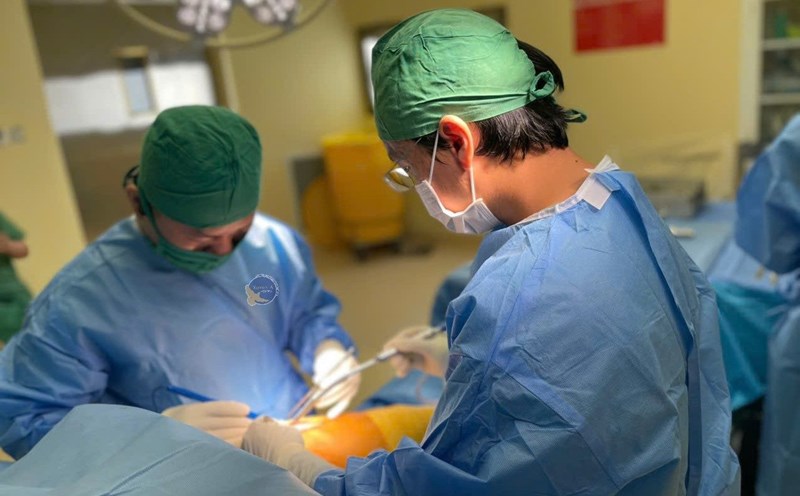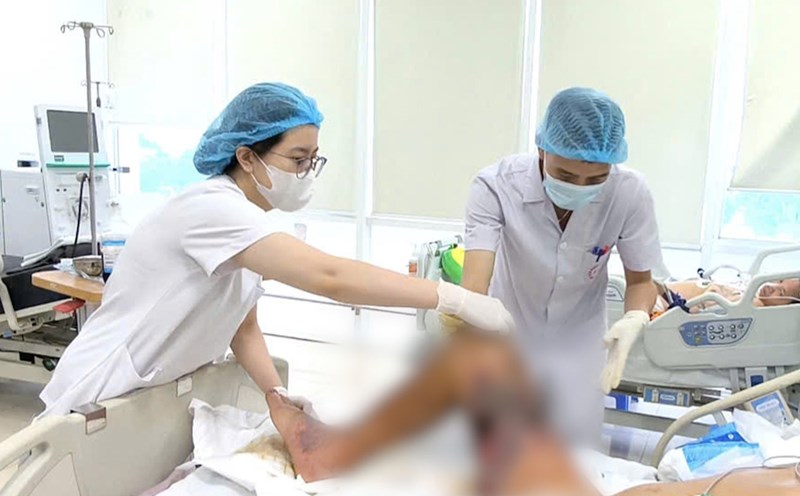On November 21, Quang Binh Friendship Hospital said that it had just received and treated a patient with necrosis of the left armored bone and damage to the annual joint, suspected to be caused by long-term effects from diving.
The patient was Mr. N.V.H (39 years old, residing in Quang Ninh commune, Quang Tri province), who came to the hospital with left shoulder pain for many weeks, the pain increased when raising his hand, reaching out his arm or performing strong movements. The patient said that he has been a freelance diver for more than 20 years, regularly diving to sea to catch seafood and salvage in high pressure environments.
The MRI scan showed the collarbone of the left arm to be necrosed, the necrosis extended down the neck and arm bone. When taking an X-ray, the doctor discovered additional signs of necrosis of the second degree of the amniotic coronary artery on both sides according to the classification of ficat and Arlet.
Doctor Nguyen Manh Thuong - Head of the Department of Surgery - Anesthesia and Resuscitation said that osteoporosis is a disease that can progress silently, but when spread, it will increase the risk of bone Atrophy, fractures and loss of shoulder or hip joint function. If the disease becomes severe, the patient may need joint replacement surgery to maintain mobility.
According to Dr. Thuong, the group of divers is at high risk of vayrocardial necrosis due to frequent exposure to high compressed air pressure and sudden changes in pressure when diving, causing damage to blood vessels and local anemia to nourish bones. Patients may have to stop working if the damage progresses severely.
With the current condition, the patient was advised to be transferred to a higher level for intensive treatment to avoid the risk of bone fractures while working in water - a situation that could directly threaten his life.
Doctors recommend that diving workers, salvage workers or workers working in high pressure environments need to have regular health check-ups, especially when there is prolonged pain in the shoulders, hips or groin to prevent serious complications.











